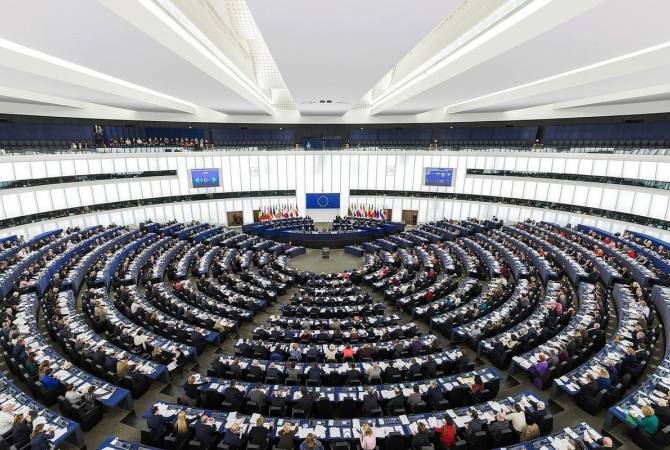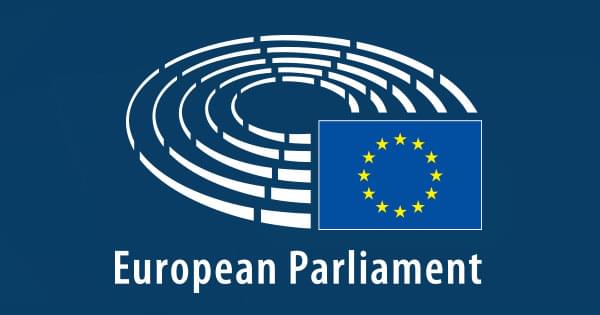in Russian – https://aga-tribunal.info/ep-22-1-2021/
On January 20, 2021 EU Parliament adopted the Annual CFSP and CSDP Reports. Below are the excerpts from large documents, where Armenia, Karabakh, Azerbaijan, Turkey are mentioned.
Source: EU Parliament official web site.
Implementation of the Common Foreign and Security Policy

The European Parliament,
…
– having regard to the Council conclusions of 18 June 2019, 15 July 2019, 14 October 2019 and 12 December 2019, the statement of the EU Foreign Ministers of 15 May 2020 and the European Council conclusions of 20 June 20219 17 October 2019 and 1 October 2020 on Turkey’s illegal activities in the Eastern Mediterranean and to the Council conclusions of 14 October 2019 on North-East Syria,
- Takes good note of the agreement on a complete ceasefire in and around Nagorno-Karabakh signed by Armenia, Azerbaijan and Russia on 9 November 2020; hopes that this agreement will save the lives of both civilians and military personnel and open brighter perspectives for a peaceful settlement of this deadly conflict; regrets that changes to the status quo were made through military force, rather than peaceful negotiations; strongly condemns the killing of civilians and destruction of civilian facilities and places of worship, condemns the reported use of cluster munitions in the conflict; urges both Armenia and Azerbaijan to ratify the Convention on Cluster Munitions, which comprehensively bans their use, without further delay; stresses that a lasting settlement still remains to be found and that the process of achieving peace and determining the region’s future legal status should be led by the Minsk Group Co-Chairs and founded on the group’s Basic Principles; highlights the urgent need to ensure that humanitarian assistance can reach those in need, that the security of the Armenian population and its cultural heritage in Nagorno-Karabakh is ensured, and that internally displaced persons and refugees are allowed to return to their former places of residence; calls for all allegations of war crimes to be duly investigated and those responsible to be brought to justice; calls on the EU to be more meaningfully involved in the settlement of the conflict and not to leave the fate of the region in the hands of other powers;
- Takes the view that the EU needs to urgently define a better geopolitical and overall strategy for its short-, mid- and long-term relations with Turkey, particularly in the light of continued democratic backsliding and the growing assertiveness of Turkey’s foreign policy, which is contributing to the escalation of tensions and having a destabilising impact that threatens regional peace and stability in the Eastern Mediterranean, Middle East and South Caucasus, and its role in conflicts in Syria, Iraq, Libya and Nagorno-Karabakh;
- Calls for the EU to play a significant role in the Mediterranean, having become an actor with the ability to guarantee the stability of the region, including in relation to combating organised crime, terrorism and irregular migration; highlights that the ongoing legislative work on the New Pact on Migration and Asylum presents a key opportunity for the EU co-legislators to improve the EU’s asylum and migration policy in order to become less dependent on Turkey;
- Reiterates that the accession negotiations with Turkey are formally frozen, in light of human rights situation, democratic back-sliding and challenges to the rule of law inside Turkey; considers that relations with Turkey should not be based on an illusory and outdated accession process; stresses that it is of common strategic interest to the European Union, its Member States and Turkey that a stable and secure environment be established in the Eastern Mediterranean; recalls, however, that the essential dialogue which must prevail in establishing this stable and secure environment can only exist by avoiding any unilateral provocation, a fortiori by military, naval or air actions; recalls in this regard the full solidarity of the EU with its Member States Greece and Cyprus;
- Reiterates that the Union is ready to use all instruments and options at its disposal, including those provided for in Article 29 TEU and Article 215 of the Treaty on the Functioning of the European Union for the defence of its interests and those of its Member States; recalls the Council conclusions of 14 October 2019 calling on the Member States to take strong national positions regarding their arms export policy to Turkey on the basis of the provisions of Common Position 2008/944/CFSP, including the strict application of criterion 4 on regional stability and calls on the VP/HR and the Council to consider introducing an initiative to oblige all Member States to halt arms export licensing to Turkey in accordance with this Common Position; recalls the Council conclusions of 1 October 2020 underlining that the EU will use all the instruments and options at its disposal, including imposing a sanctions regime on Turkey in order to defend its interests and those of its Member States; reiterates its call on the VP/HR for as long as Turkey continues with its current illegal, unilateral actions in the Eastern Mediterranean that run counter to the sovereignty of any EU Member State and international law, and does not engage in dialogue based on international law; calls on the NATO leadership to communicate in the strongest terms to Turkey that it will not tolerate the country’s aggressive acts against fellow NATO members;
- Strongly condemns the signature of the two Memorandums of Understanding between Turkey and Libya on the delimitation of maritime zones and on comprehensive security and military cooperation, which are interconnected and are in clear violation of both international law and the UN Security Council resolution imposing an arms embargo on Libya;
- Strongly condemns the destabilising role of Turkey which further undermines the fragile stability in the whole of the South Caucasus region; calls on Turkey to refrain from any interference in the Nagorno-Karabakh conflict, including offering military support to Azerbaijan, and to desist from its destabilising actions and actively promote peace; condemns, furthermore, the transfer of foreign terrorist fighters by Turkey from Syria and elsewhere to Nagorno-Karabakh, as confirmed by international actors, including the OSCE Minsk Group Co-Chair countries; regrets its willingness to destabilise the OSCE Minsk Group as it pursues ambitions of playing a more decisive role in the conflict.
Implementation of the Common Security and Defence Policy
The European Parliament,
…
13. Welcomes the cessation of hostilities in and around Nagorno-Karabakh; underlines with concern the military involvement of third countries in the conflict and notably the destabilising role and interference of Turkey; calls for an international investigation into the alleged presence of foreign fighters and use of cluster munitions and phosphorous bombs; calls on the European Union and international bodies to ensure that there is no impunity for war crimes in Nagorno-Karabakh and for the use of prohibited weapons in the Nagorno-Karabakh conflict; insists on the need to allow humanitarian aid to get through, to proceed without delay with the exchange of prisoners and casualties, and on the need to preserve the cultural heritage of Nagorno-Karabakh;
This information in other resources
- in “Armenian community in Russia” group in Facebook
- in “Ararat Armenian Forum” group in Facebook
- in “Groong – Armenian News Network” in Facebook
- in Telegram
- in Twitter

One thought on “EP CFSP and CSDP 2020 reports on Karabakh, Azerbaijan and Turkey related issues”